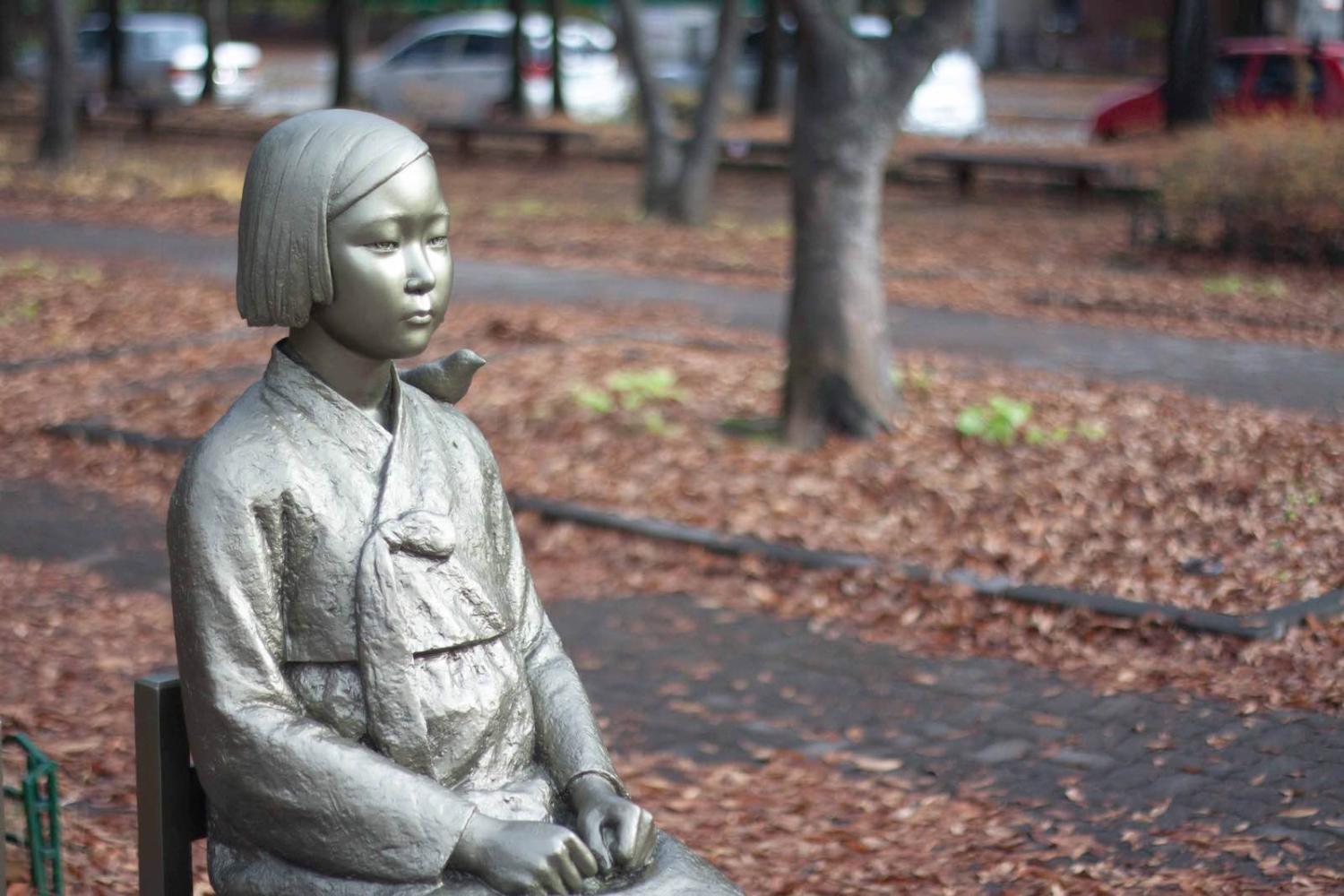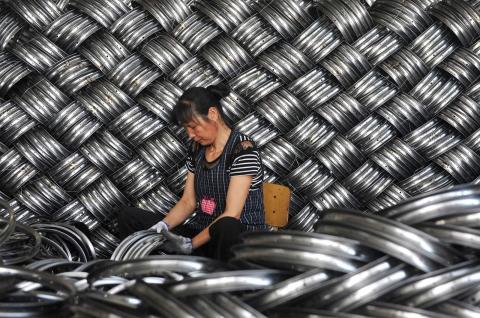The history of China’s “comfort women” – a term used to describe the sex slaves of the wartime Japanese military – is a potent case illustrating the power of national identity. Over the past decade or so, nationalism has thrust this harrowing past into the limelight and seen Beijing become an active participant in the global effort to seek justice and recognition for these women.
Now the issue of China’s comfort women is about to cross an inflection point.
The children of 18 deceased former Chinese comfort women filed a historic lawsuit against Tokyo in the high court of China’s Shanxi province. The plaintiffs seek financial compensation each of up to two million yuan (approximately A$416,000) and a formal public apology for the grave abuses the women endured, such as kidnapping, detention, rape, torture, and the spreading of sexually transmitted diseases.
This first-ever lawsuit in China rightly emphasises the severe violation of women’s rights. The late Zhang Xiantu, one of the women, recalled her first encounter with the Japanese soldiers invading China: “In March 1941 seven or eight of them entered my home and took turns raping me for several hours until my private part was awash with blood”. Afterwards, Zhang was abducted as a comfort woman at the age of 15. Another woman, Zhao Runmei, was raped by a group of Japanese soldiers a month later, having just witnessed a neighbour butchered, and then her foster parents killed.
Before the deterioration of bilateral relations between China and Japan in early- and mid- 2010s, China’s comfort women had hardly received public or official attention.
From China’s perspective, the experiences and suffering have mostly been associated with South Korean “comfort women” and the Chinese experience overlooked. This changed after Sino-Japanese relations plummeted in 2014 following Tokyo's nationalisation of the disputed islands (known as Diaoyu in Chinese and Senkaku in Japanese). State-led nationalism against Japan ran rampant. China transitioned from merely sympathising with the suffering of Korean comfort women to actively condemning Japanese wartime sexual violence perpetrated against Chinese women.
Words turned into action. A strong wave of nationalism propelled China’s comfort women into the mainstream as victims of national suffering, leading to their inclusion in the Memorial Hall of the Victims in the Nanjing Massacre by Japanese Invaders. In the same year, China submitted the history of Chinese comfort women to UNESCO’s Memory of the World for global recognition. Before the deterioration of bilateral relations between China and Japan in early- and mid- 2010s, China’s comfort women had hardly received public or official attention. Since then, their history has become an integral part of the nation’s collective memory. The issue of China’s comfort women is as much a part of the collective memory as it is of state-led nationalism.
But there are limitations of relying solely on state-driven nationalism.
First, it effectively marginalises the experiences of those that do not fit into the public discourse. South Korea offers a good example of how nationalism has largely driven the justice-seeking efforts. As a result, non-conformative narratives at times can be legally silenced, as in the case of Park Yuha. In 2014, Park, a professor of Japanese literature at Sejong University in Seoul, was prosecuted with a criminal defamation lawsuit for allegedly slandering former women survivors due to her stance on the compulsory use of women by Japanese military and her positive analysis of the relationships between Japanese soldiers and Korean women. The case brought in Shanxi will also likely touch on the complex historical relations between Japan and China, as well as the dynamics among various stakeholders within China itself.

Second, nationalism may overshadow the issues of sexual violence. Ironically, on 19 April, the day after the Shanxi lawsuit, Japan’s Ministry of Education approved the revision of the middle school history textbook by the publisher Reiwa Shoseki. By officially endorsing this revision, the Japanese government appears to adopt the textbook’s perspective: that comfort women were paid prostitutes who received fair payment for their work and that the Japanese military authorities bore no responsibility for any wrongdoings. While South Korea reacted angrily, summoning Japanese ambassador in Seoul to complain, China’s response was muted, a contrast to the fierce reaction seen in 2014 when Japan revised its history textbooks on the comfort women issue, when China complained this amounted to “challenging the outcomes of World War II, and the post-war international order.”
Third, nationalism may instrumentalise the memories of victims for (geo)political purposes. At and after the peak of nationalism and anti-Japanese sentiment, China applied twice for UNESCO recognition of the comfort women experiences, in 2014 and 2016. In the second attempt, Beijing mustered concerted efforts in collaboration with countries with similar histories of sexual abuse, such as South Korea, the Philippines, Indonesia, the Netherlands, and East Timor (also including the British Imperial War Museum).
Nationalism has led to the re-emergence of China's comfort women in the public space, elevating their story to the collective memory of the nation. The modern focus has been tied to both popular and state-led nationalism. And while this knowledge may enter the public consciousness as a result, it will likely remain subordinate to the forces that resurrected it.
The Shanxi case provides a revealing snapshot of the larger picture. It will be a litmus test for Beijing. But depending on the trajectory of relations between China and Japan, do not be surprised if the first domestic landmark legal action against Tokyo amounts to nothing.

